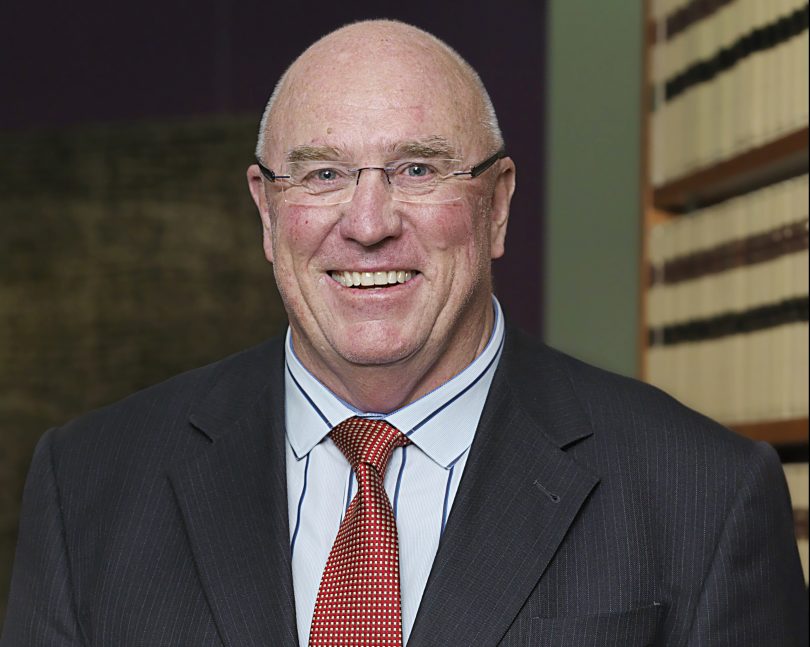
What happens when the application of a person’s will is not as black and white as the words on the document? Photo: File.
A will should represent a person’s wishes, in writing, as to how they want to distribute and leave their assets after death.
But what happens when the terms of the will are ambiguous or for some reason, seem unacceptable?
Maliganis Edwards Johnson (MEJ) partner Craig Edwards says many people don’t realise the application of a will can be changed after its testator (person leaving the will) has passed away.
“It’s a straight dichotomy,” he says.
“Legally a sane adult is entitled to distribute his or her assets and property as they please – that’s seen as being almost an absolute right.
“At the same time, our society takes the view that when you draft your will, you need to consider whether you actually have obligations to provide for a particular person, or a category of people. Sometimes society will impose an obligation to recognise a person in your will.
“That’s not to say people should automatically challenge a will if they’re simply unhappy with the outcome. You still need a legitimate basis for challenging the distribution of assets. But if you have any uncertainty about an entitlement under a will, don’t feel awkward about discussing it with your solicitor.”
READ ALSO: Kirsten Leitch is breaking the mould in workplace injury law
Mr Edwards says “legitimate bases” vary between states but usually arise where a will fails to appropriately acknowledge a significant contribution to the testator by a person or someone who may have special needs and should have been provided for by the testator.
“A classic scenario happens with farms, hotels, and other family businesses,” he says.
“Say there’s a family farm and several children. Most of the children go off to take an education and live in the city, but one opts to stay and work the farm, taking a paltry income for years with the expectation they would inherit the bulk of the property.
“Other common scenarios may include a family member who suffers from a medical condition or handicap, or who has educational needs that the testator should’ve, in principle, provided for.
“Another textbook situation is where someone has provided nursing or domestic services, they put their life on hold to help an ailing or elderly family member and shortly before death, there’s an estrangement and they’ve been left out entirely.”

MEJ partner Craig Edwards says it usually takes one meeting to ascertain if a client has reasonable grounds to challenge a will. Photo: MEJ.
Whatever the reason, disappointment can run deep when contents of a will are revealed. Mr Edwards warns against letting emotions overtake reason.
“Firstly, we need to know what we are dealing with – what are the assets in question? Has there been a proper inventory taken? Are the valuations up to date and realistic?” he says.
“Sometimes the hurt might be extreme, but if the estate is small – perhaps no more than a house full of used furniture and a small amount in the bank, you may simply take the view that it is not worthwhile contesting the will.
“On the other hand, a potential client might speak with us regarding what they believe to be a small estate or superannuation scheme, but it turns out after our investigations there are more assets than they realised. And if they do contest a will and obtain a fair adjustment, it can have a multi-generational benefit for their family.”
READ ALSO: Lawyer James Treloar calls for mandatory insurance as e-scooter injuries tipped to soar
Mr Edwards says it’s possible in the majority of cases to ascertain whether a client has reasonable prospects after one meeting. “[But] gather all the documentation and information you can,” he says.
“The first thing we do is obtain a copy of the will and, if probate has been granted, a copy of that document and the inventory. Other relevant documents may include correspondence, business records, medical records, details of expenses or prior copies of a will.
“If you don’t have the records but can give us sufficient instructions to pursue these records, we can – but the more information we have up front, the quicker we can advise.”
Mr Edwards also stresses the importance of privacy and confidentiality.
“It’s a private matter between an individual and their lawyer,” he says. “And most matters involving will disputes can and are resolved by negotiation.”
For more information, contact MEJ.
Original Article published by Dione David on Riotact.


What's Your Opinion?